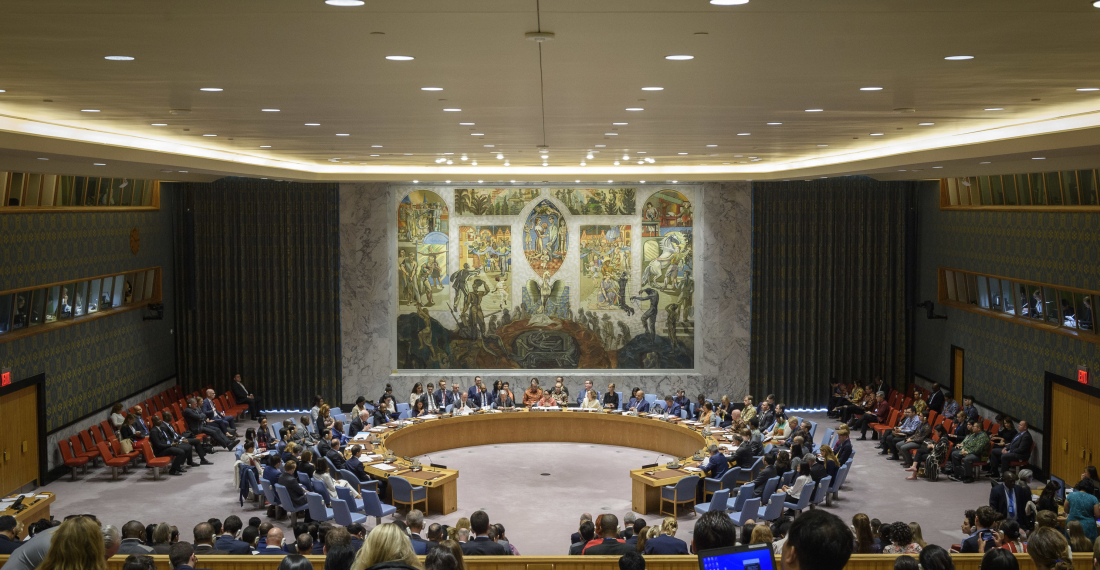This afternoon (16 August), the Security Council will convene for a briefing on the situation in the Nagorno-Karabakh region. Armenia requested the meeting in an 11 August letter to the Council invoking Article 35 of the UN Charter. Under Article 35 (1), any UN member state “may bring any dispute, or any situation referred to in Article 34 [that is, one that may lead to international friction or give rise to a dispute] to the attention of the Security Council or of the General Assembly”. OCHA’s Director of Operations and Advocacy Edem Wosornu is expected to brief. Armenia and Azerbaijan are expected to participate under rule 37 of the Council’s provisional rules of procedure.
As details regarding the humanitarian situation in the Nagorno-Karabakh region remain unclear, Council members may be keen to hear Wosornu’s assessment of the situation on the ground at today’s meeting. Wosornu is likely to reiterate the Secretary-General’s position, calling for urgent steps to facilitate access for the delivery of humanitarian assistance to civilians in the Nagorno-Karabakh region. In this regard, she may note the challenges faced by the ICRC in recent months concerning the delivery of humanitarian goods through the Lachin corridor. In a 25 July statement, the ICRC said that it “is not currently able to bring humanitarian assistance to the civilian population through the Lachin corridor or through any other routes” and called on relevant decision-makers to allow the ICRC to resume its operations in the area.
At today’s meeting, Council members are likely to express concern regarding the humanitarian situation in the Nagorno-Karabakh region and call for the unblocking of the Lachin corridor to facilitate the rapid, safe, and unimpeded delivery of humanitarian aid to those in need. These members may also stress the need to allow the ICRC to carry out its operations without obstruction. Some members may suggest that the blockade is threatening the ongoing peace process between Armenia and Azerbaijan.
Council members remain united in their support for a negotiated solution for the Nagorno-Karabakh conflict and supportive of the efforts by the OSCE Minsk Group. In the past, the issue of Nagorno-Karabakh represented a rare instance of cooperation between Russia and the P3 (France, the UK, and the US)—members who are often divided on other issues addressed by the Council. However, it appears that these dynamics may have changed because of recent developments, including Russia’s invasion of Ukraine in February 2022. In addition, it seems that in recent years, there has been a growing competition—between Russia, on the one hand, and the EU and the US, on the other hand—to assume the leading mediation role in the negotiations between Armenia and Azerbaijan.
In October 2022, Armenia agreed to facilitate an EU civilian mission along its border with Azerbaijan. Furthermore, a resolution adopted by the European Parliament on 19 January condemned the inaction of Russian peacekeepers, saying that “replacement with OSCE international peacekeepers, under a UN mandate, should be negotiated urgently”. During a 28 February press briefing, Russian Foreign Minister Sergey Lavrov accused the EU of abusing its relations with Armenia and Azerbaijan and questioned the legitimacy of the EU mission in Armenia.
These tensions have also been apparent within the Security Council. In December 2022, France prepared a draft press statement on the situation in the Lachin corridor, calling for the free movement of people and essential goods. However, consensus on the text among Council members could not be reached. In a 31 December Telegram post, Russian Deputy Permanent Representative to the UN Dmitry Polyanskiy said that Western members were unwilling to accept Russian-proposed language referring to “the efforts of the Russian peacekeepers”. It remains uncertain if Council members will seek a product related to this issue. Today’s meeting could provide insight on Council members’ willingness to pursue such a product.



